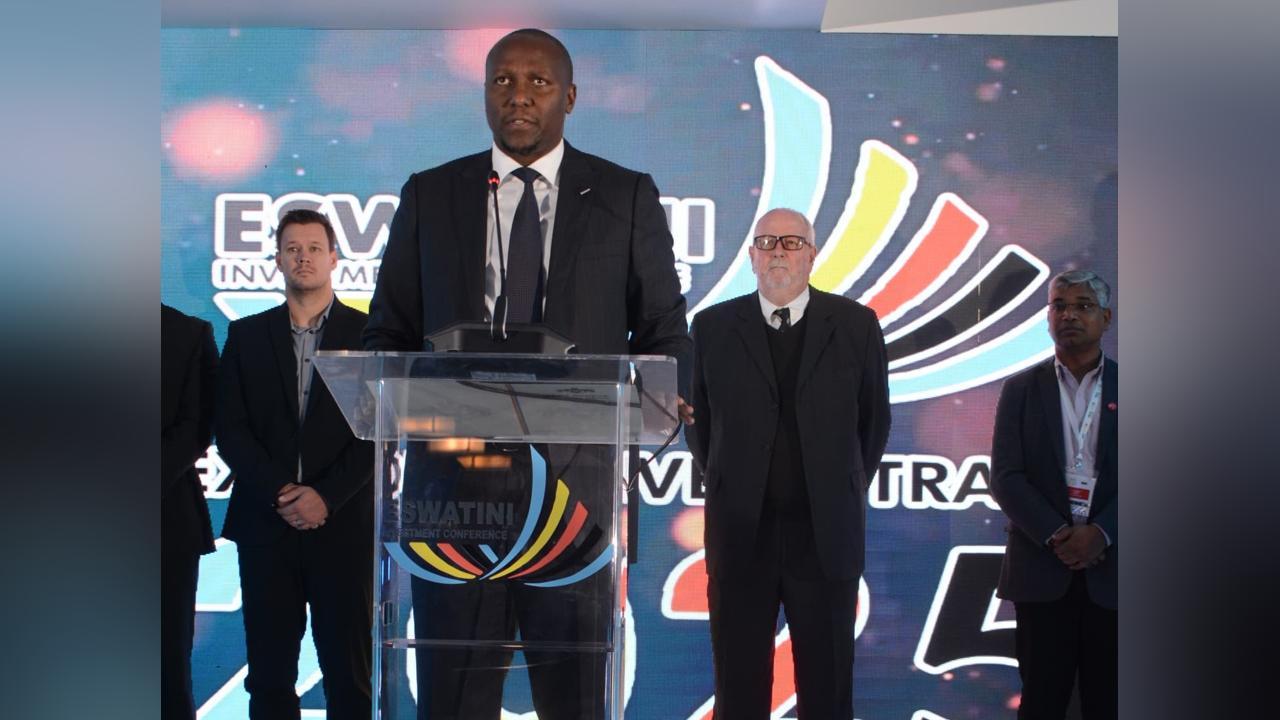Africa-Press – Eswatini. The Kingdom of Eswatini made its mark at the 2025 United Nations Peacekeeping Ministerial Meeting held in Berlin, Germany, asserting a firm stance in support of African-led peacekeeping operations, gender inclusion, and multilateral cooperation in global security matters.
Minister of Foreign Affairs and International Cooperation Senator Pholile Shakantu led the Eswatini delegation,
which included His Royal Highness Prince Sicalo, who is the Principal Secretary in the Ministry of Defence, Under Secretary for Political Affairs Vulindlela Kunene, and Xolile Ngwenya, Counsellor at the Embassy of the Kingdom of Eswatini to the European Union.
The Ministerial meeting held from 13–14 May took place under the shadow of both the 80th anniversary of the United Nations and the 10-year milestone since the Leaders’ Summit on Peacekeeping.
More than 130 countries gathered alongside UN Secretary-General António Guterres to engage in high-level dialogue on advancing peacekeeping effectiveness and safety in the face of escalating global security challenges.
When addressing the global assembly, Minister Shakantu positioned Eswatini as a steadfast supporter of African-led solutions and a vocal advocate for enhancing the partnership between the United Nations and the African Union.
“Eswatini stands for peace mandates that empower communities, particularly women and youth, in line with our gender equality framework,” Shakantu declared.
She emphasised Eswatini’s implementation of United Nations Security Council Resolutions 1325 and 2538 on women, peace, and security.
The Minister called for sustainable financing of African Union-led peace operations as outlined in UN Security Council Resolution 2719, while also spotlighting the role of the Southern African Development Community (SADC) in anchoring regional stability.
Emphasising sovereignty and community involvement, she insisted that peacekeeping must be locally rooted and inclusive in order to deliver enduring results.
Eswatini’s position, she stressed, is grounded in its foreign policy pillars of sovereignty, multilateralism, and inclusivity.
At the centre of Eswatini’s message was a strong push for gender-responsive peacekeeping. Drawing from national gender policies, Shakantu advocated for a greater presence of women in leadership within missions and stressed the need for peacekeeping frameworks to include robust accountability for sexual exploitation and abuse.
“Our interventions emphasise sustainable peace through local ownership and inclusive governance,” she stated.
In addition to the plenary engagements, Eswatini held a series of high-level bilateral discussions, further reinforcing its profile as an emerging diplomatic voice in international peace and development discourse.
With a bold call to investors from across the globe, the Kingdom of Eswatini officially opened the doors to new economic partnerships at the inaugural Eswatini Investment Conference this week. Under the
banner “Eswatini Open for Business,” the landmark event brought together government leaders, international investors, development partners, and local entrepreneurs to showcase the country’s investment potential and commitment to sustainable economic growth.
On the sidelines of the Ministerial, Shakantu met with Germany’s Minister of State Gunther Krichbaum, where both parties agreed on deepening cooperation in renewable energy and youth empowerment. Eswatini is targeting German investment to propel its green energy agenda.
Minister Krichbaum also affirmed Germany’s willingness to support Eswatini’s peacekeeping readiness through capacity-building and technology transfer. This mutual commitment laid the groundwork for broader collaboration in security and development.
Further strengthening bilateral relations, Minister Shakantu also held talks with the Federal Minister for Foreign Affairs of Germany, Johann Wadephul.
The meeting reiterated Berlin’s dedication to building stronger ties with Mbabane, amplifying the diplomatic momentum gained during the Ministerial.
Again, engagements extended beyond Europe, with Minister Shakantu meeting her counterpart from the Philippines, Secretary of Foreign Affairs Enrique A. Manalo.
Their dialogue centred on increasing bilateral cooperation, including high-level visits to solidify diplomatic and economic ties.
Senator Shakantu also sat down with Liberia’s Minister of Foreign Affairs, Sara Nyanti, for an exchange that celebrated “equilibrium diplomacy” and “cultural diplomacy.”
The two ministers explored how indigenous governance systems, particularly Africa’s pre-colonial models, can play a revitalised role in building peace from the community level upward.
They highlighted the importance of dialogue and mutual understanding in shaping Africa’s approach to peace and security.
Meanwhile, His Royal Highness Prince Sicalo led engagements with African counterparts focused on defence and regional peacekeeping.
A bilateral meeting with Rwanda’s Minister of Defence revisited the 2024 cooperation agreement between the two countries, discussing steps toward its full operationalisation.
Similarly, a conversation with Brigadier General Mnimizi Sizani of South Africa touched on enhancing regional collaboration for peacekeeping readiness in Southern Africa, with plans for further dialogue through formal channels.
For More News And Analysis About Eswatini Follow Africa-Press







